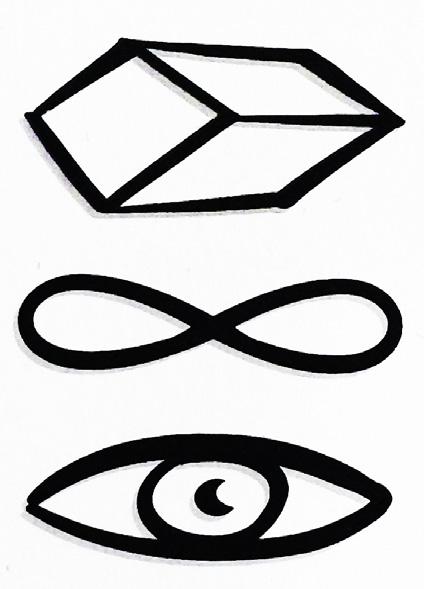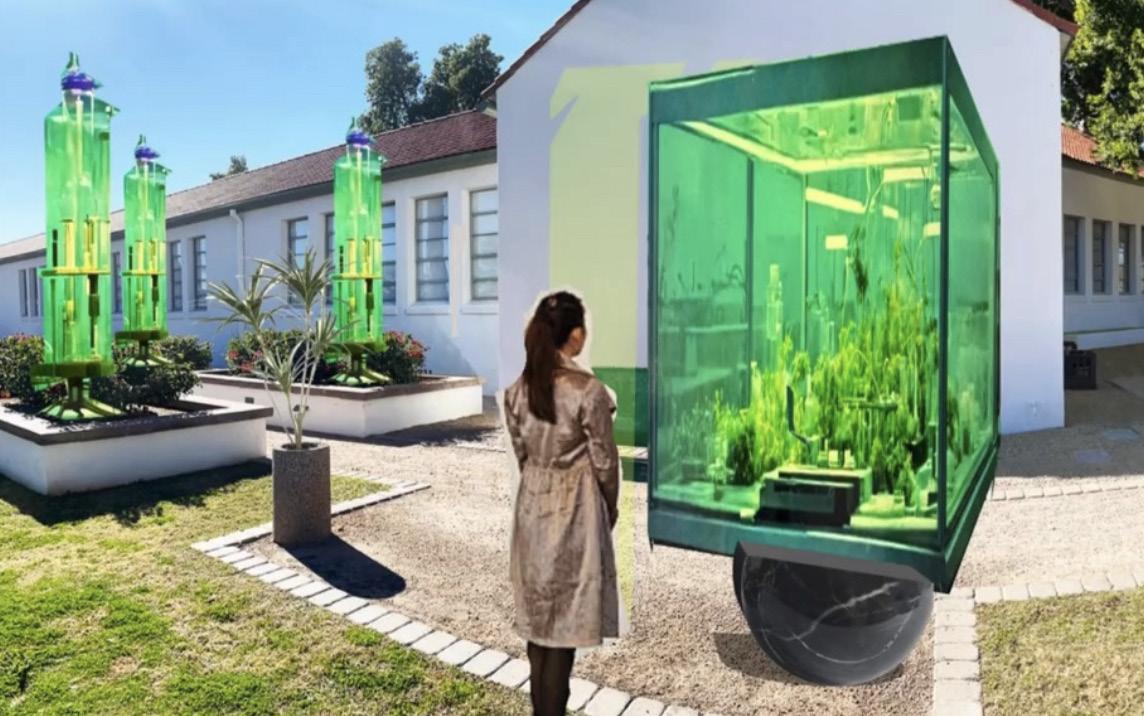SEED LAB
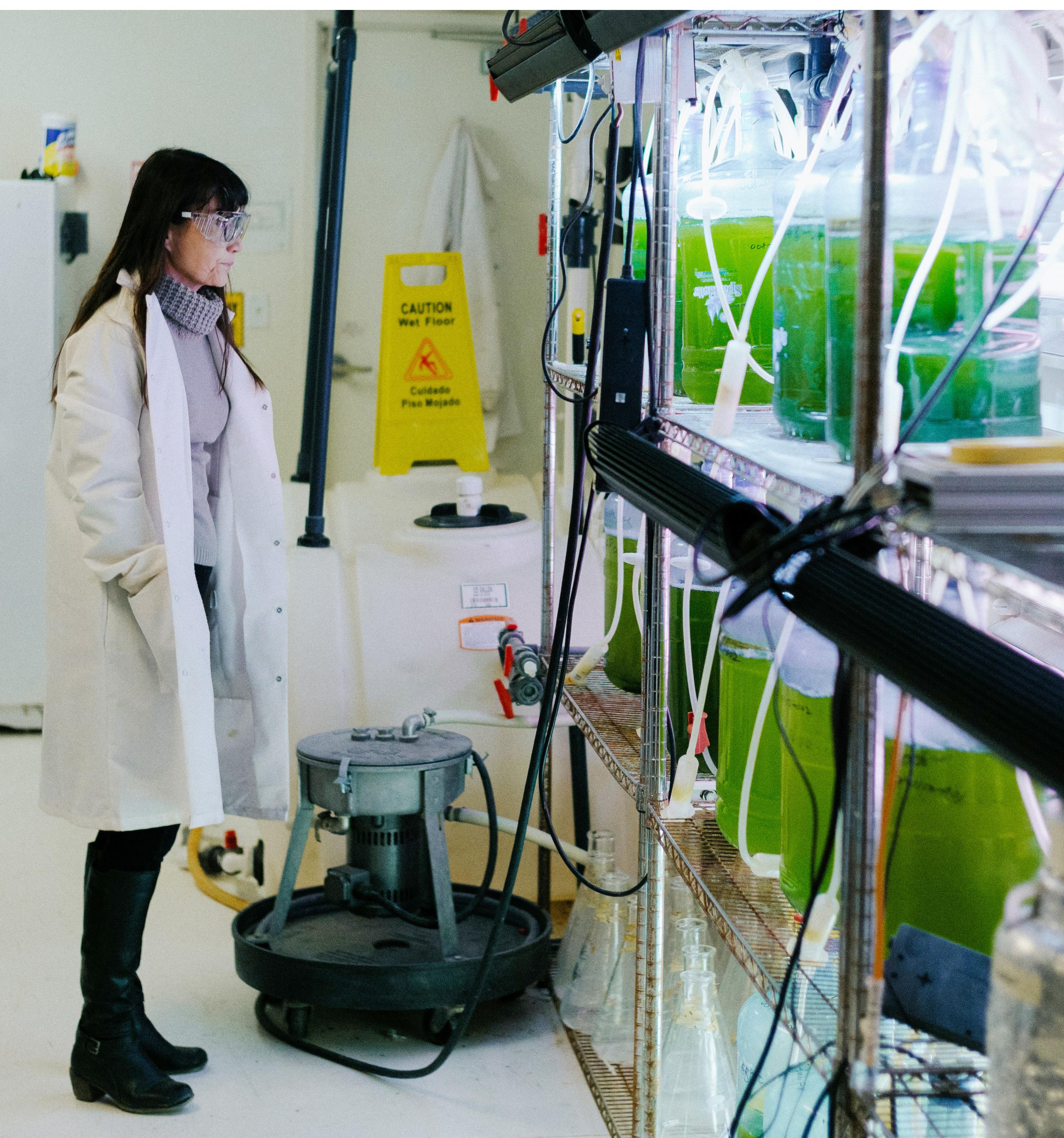






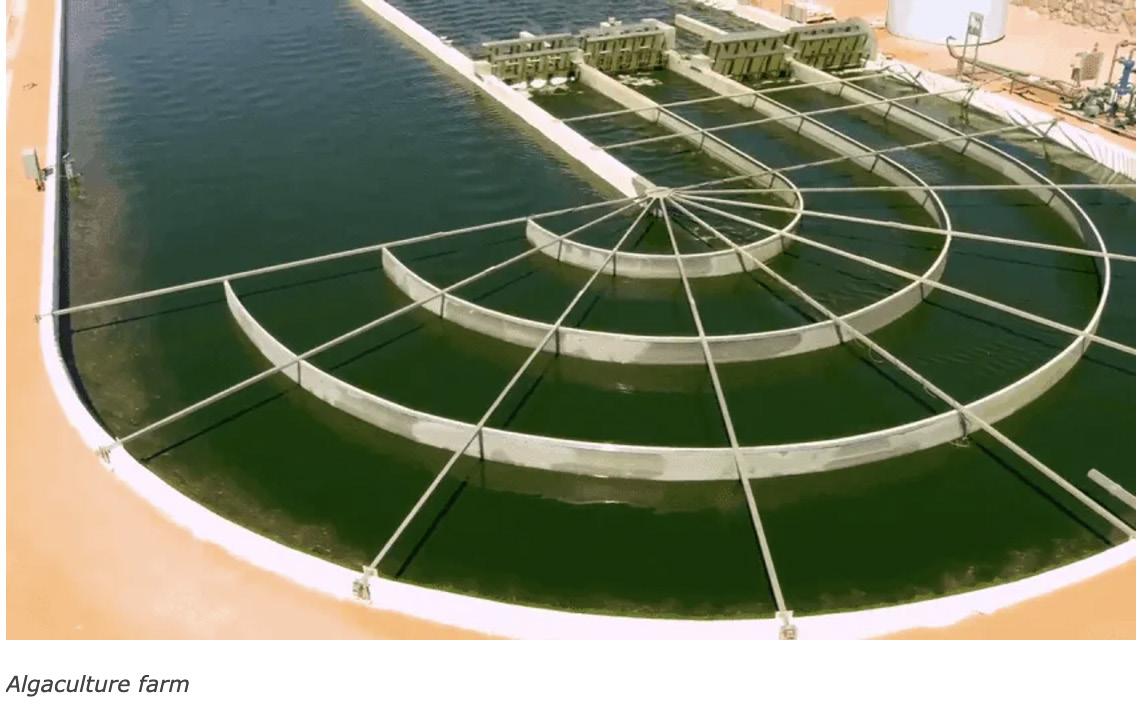
(image from web).
Arizona Algae Products works with teams of engineers, scientists, chemists and farmers to develop cutting edge technologies used to circulate ponds and reduce water evaporation. Arizona Algae collaborates with world energy corporations to innovate new industrial-scale mechanization in algae oil extraction processes. Highest quality standards and sustainability practices are key to their vision toward the future of farming and food systems.

Neighboring the Petrified Forest National Park, situated at 5,500 feet elevation on the Colorado Plateau, just above a salt bed within the Coconino Aquifer on a former farmstead, in Holbrook, AZ, Navajo County, Henk de Waard founded Arizona Algae Products, an innovative biotechnology company dedicated to producing the highest quality, vegan alternatives to fish derived omega 3’s from algae.
With his background in the semiconductor sector de Waard’s forward-looking mind set manifests in patented technologies and groundbreaking invention. Among few pioneers focused on global scale algae farming, Arizona Algae Products aims to set industry standards in the drive towards carbon-negative operations. Their mission to be part of the solution is propelled by their outreach and collaboration across disciplines. In 2022, Arizona Algae partnered with Nooter/Eriksen, Inc., a global leader in the sustainable energy sector, to jointly design and build a state of the art, pilot-scale integrated biorefinery. With this first of its kind model complete and fully operational they are on the forefront in advancing methods of algae farming and expanding production capabilities.

In the lab, Arizona Algae’s team of scientists experiment, and perfect specialized recipes scaled to feed cultivation ponds that are circulated by custom designed motors and pump machines. Over 12,000 square feet of proprietary photobioreactors, controlled environment greenhouses, enclose the natural algae ponds and prevent evaporation with one hundred percent of aquifer sourced water regenerated and recycled. The light and energy necessary for growing comes from abundant Arizona sunshine.

Lab grown algae cultures are specialized and transferred to large-scale, photobioreactors and/or expansive, glass covered, circulating ponds to yield nutrient rich algae used in food preparation and throughout wellness industries.


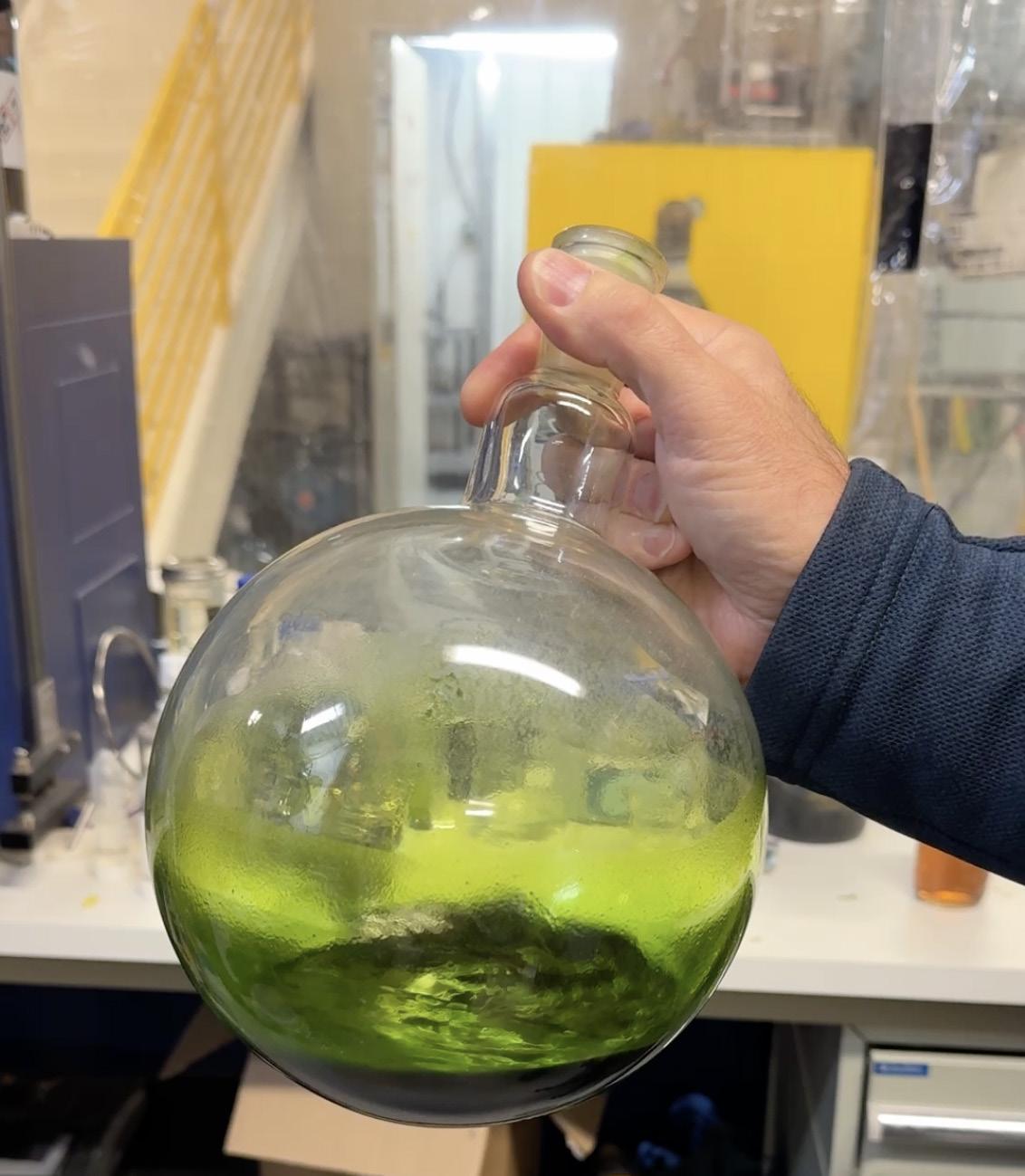
Arizona Algae offers the highest quality, environmentally friendly, chemical free vegan alternatives to fish and krill-based products. They specialize in beneficial EPA Omega - 3’s and protein powders from photosynthetic microalgae for use in food and wellness products.
“Our mission is to enhance human health, foster societal well-being, and safeguard planetary sustainability through sustainable, pure, consistent practices prioritizing environmental stewardship.”
– Henk
de Waard, Managing Member, President and CEO at Arizona Algae Products.
Images, top, taken during field trip. Below, photo credit Arizona Algae. Opposite page artwork by Cece Cole based on a recent news interview by the visionary landscape architect Kongjian Yu (b.1963-d.2025).
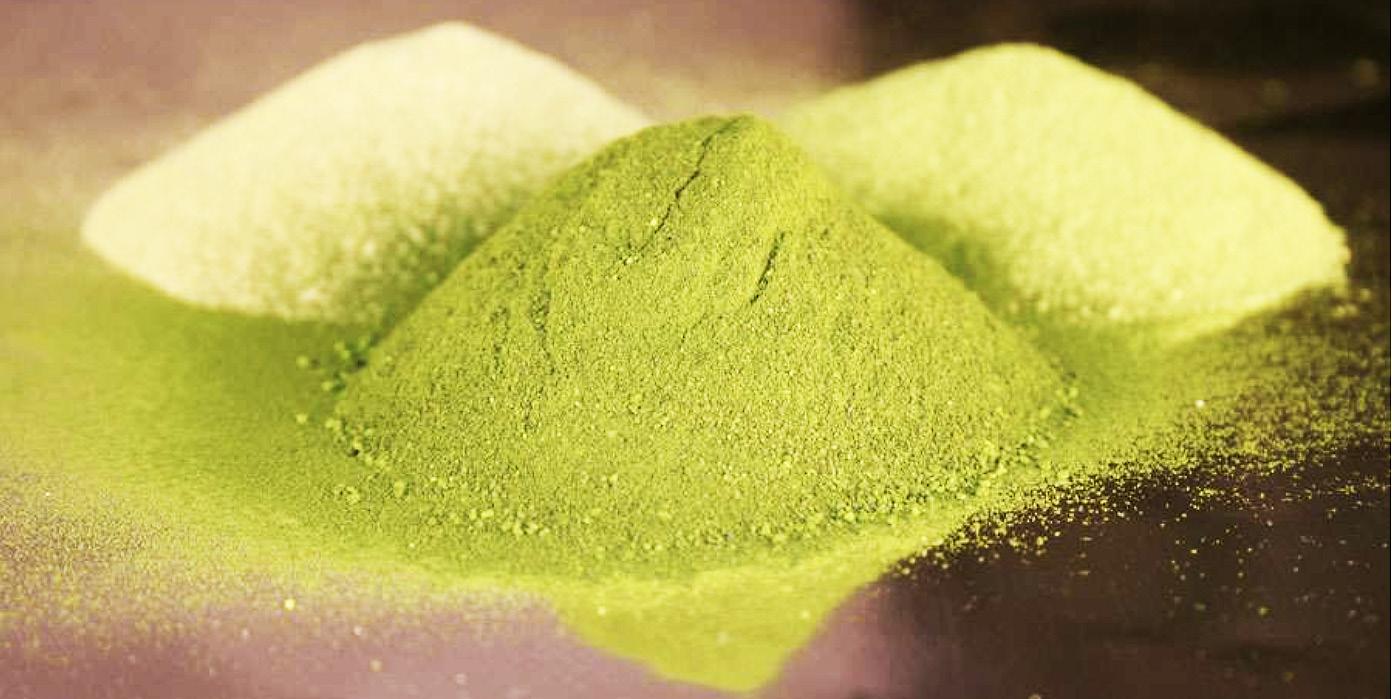


You can grow your own spirulina to put in a smoothie and, recycle plastic bottles, vases, and jars. The web is filled with information and tips on how to start and cultivate algae at home. Type DIY algae framing into your browser or follow the instructions below!
At home algae farming may yield enough supply to offset your household costs and Algae’s regenerative properties make it possible to scale-up and share. Like a sourdough starter, it is living and growing. While growing algae requires the proper conditions and care it is also resilient and simple to start. It’s everchanging properties and many shades of greens calm the mood and spark curiosity. Add timed grow lights to make a living lamp!

DIY PRO TIP: You can order cultures and nutrients online. The house favorite for ease of shopping and growing instructions: algaeresearchsupply.com
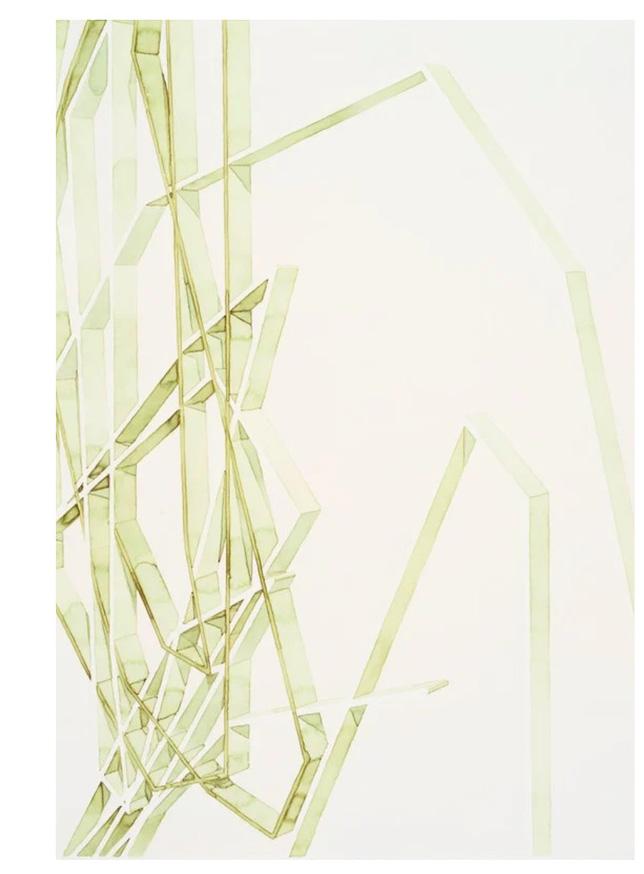

Rob Carter creates multidisciplinary artworks examining biochemistry and environmental sciences. He received his BFA from The Ruskin School of Art at Oxford University and an MFA in Studio Art from Hunter College in New York. He lives and works in Flint, MI and teaches at University of Michigan-Flint. Rob’s extensive national and international exhibition record includes numerous residences and fellowship awards. With his Soy Drawings series Carter documents the growth and movement of two soybean plants over the course of several days. Time-lapse photography also captures the actions of the artist, seen entering the space every 15 minutes to chart movement using an analogue methodology first employed by Charles Darwin in the 1870s. This approximation of movement is rendered digitally and by hand, showing the results from three angles and forming lines as if drawn by the plants themselves.
robcarter.net.
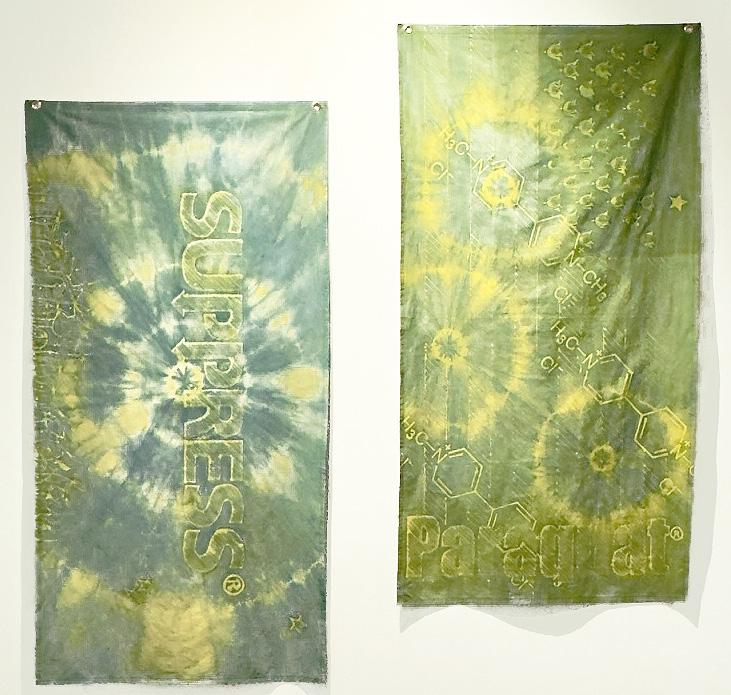
Image opposite page is from Carter’s Soy Drawing series. This page, top, detail from site specific, agave rope wall drawing and text-based, hand-dyed fabrics. Below top, video still from Plant Writing, time-lapse photography documenting the growth and movement of two soybean plants over the course of several days. Bottom, digital collage from Plant Portraits
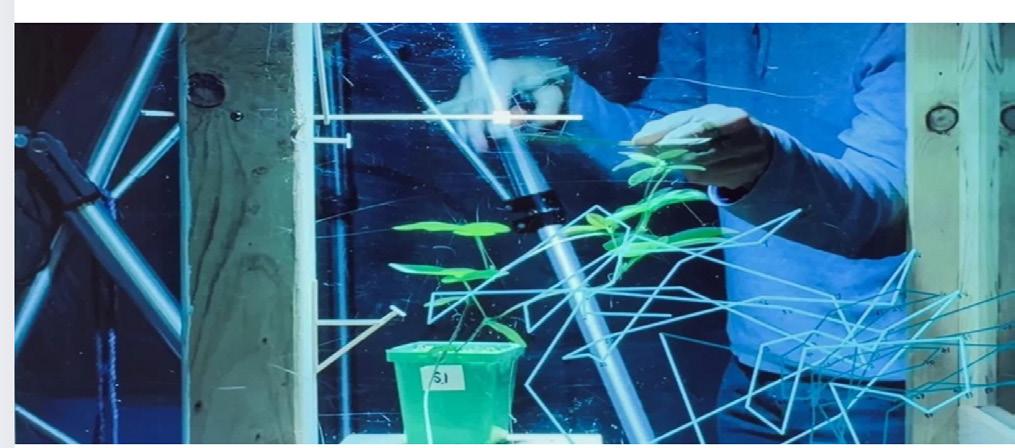


Featured Artist:
Photography artist Cyd Peroni experiments with materials and mediums to capture fleeting and chance moments with macro photography. Her abstractions invoke geographical and cosmological formations.

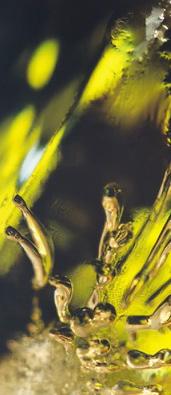
Images this page, left, Peroni’s Exoplanets, 2022. The circular formatted, micro views of melting party ice resemble portals to new dimensions. Right detail is from her series Tiny Cosmologies and below an installation view from the 2025 small group exhibition Algae Farming at The Gallery inside the Mountain Shadows Hotel in AZ, USA.

Image opposite page, Cyd Peroni,from Crystal 615, 2025, with insect. cydperoniphotography.com

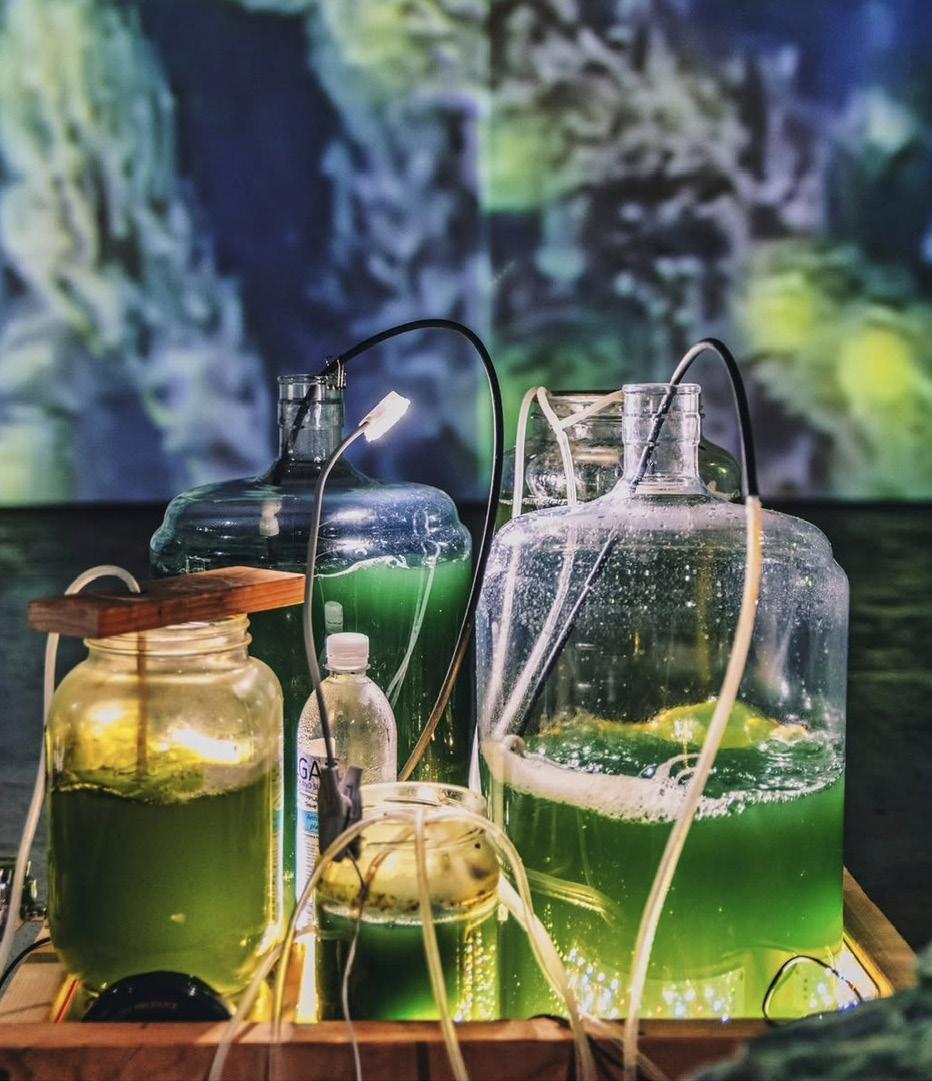

Acknowledgements and Image credits:
Cover photo by Mario Vega. Text and some photos by Cece Cole with site images and algae recipes at Arizona Algae Products. DIY algae growing instructions from the web. Artwork and installation images from Tea Time in Sponge City by Cece Cole studio. Below, image by Cole taken at Scottsdale Artist’s school with AI assist, visual prompt for public use algae kiosks. Thank you for the tour, Henk and Amy at Arizona Algae Products! Special thanks to Mountain Shadows Resort Hotel for your continued support of the arts and De Sarthe Gallery for the time and space for exhibition as 2025 artist in residence. SEED LAB is posted and published by Form•Space•Vision.
